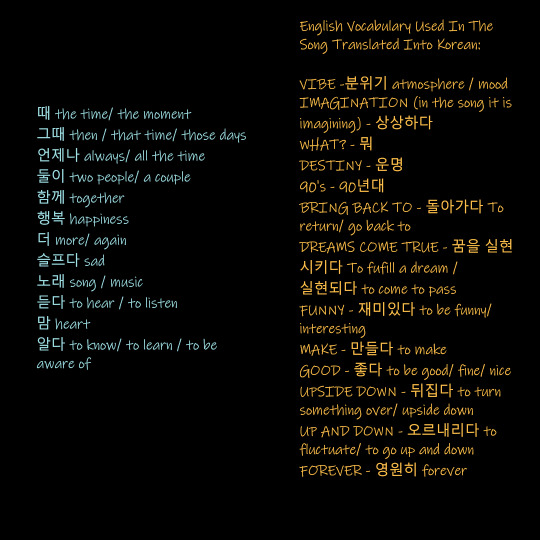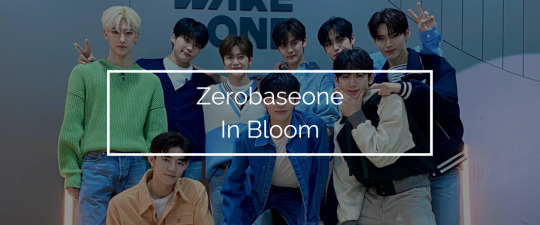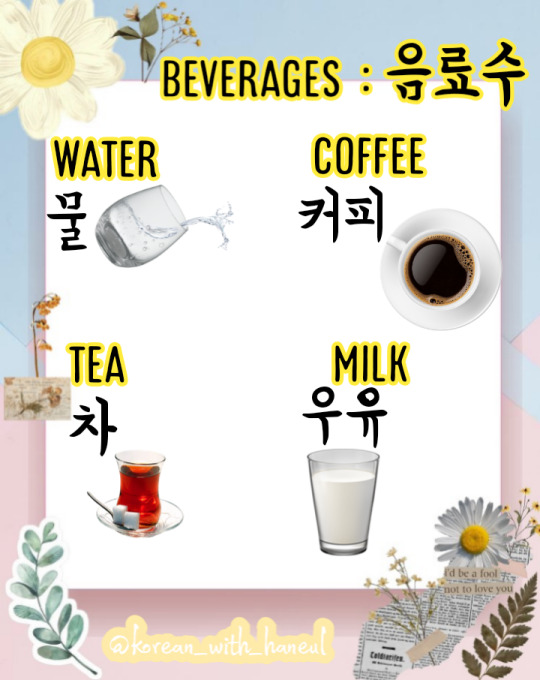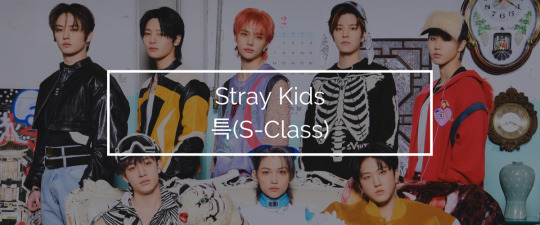#kpop vocabulary
Text
One-Page Masterlist
안녕하세요! Hey everyone! I recently got an ask about my old masterlist, which is the same as my broken-down masterlist except it has all of my lessons on one page, rather than on multiple separate posts. Some may find this expanded version easier to navigate, so I’ll keep this up for y’all! My broken-up masterlist, of course, will still be available for those who find that more helpful :)
Hangul Lessons
Consonants
Vowels
Writing/Reading Korean Syllables
Some 받침 Rules
Diphthongs
Stroke Order
Some More 받침 Rules
Irregular Verbs
The Basics
Common Phrases
Numbers
Sino-Korean vs. Native Korean Numbers (Instagram Post)
Sentence Structure and Particles
Present-Tense Conjugations and Formal Language
Adjectives
Questions
Honorifics and Casual Language
Beginner
Negative Sentences
잘 and 못
Past Tense
Future Tense (-ㄹ / 을 것이다)
-ㄹ / 을 까요? (Shall we…? / I wonder…?)
-(으)세요 (Giving Commands / Asking Questions)
Telling Time
-고 싶다 (I want to…)
How to Say “And”
-지만 (However)
아/어/여서 (So…)
Negative Commands
Spacing (띄어쓰기)
Adverbs
ㅂ Irregular
Comparatives and Superlatives
난, 날, & 내가
Upper-Beginner
-(으)면 (If…)
아/어/여도 (Even though…/Even if…)
(으)면 되다 / 아/어/여도 되다 (I can…/You may…)
-아/어도 되다: Asking for and Giving Permission (Instagram post)
-(으)면 되다 & -(으)면 안 되다 (Instagram post)
아/어/여야 되다 and 아/어/여야 하다(Have to / Should)
Present Progressive (-고 있다)
How to Say “Or”
-아/어/여하다
All About 중
How to Use -(으)로
Before & After
-ㄴ/은 채로
Intermediate
Describing Nouns with Verbs (-는 것)
Describing Nouns with Verbs - Past & Future Tense (-ㄴ/은 / -ㄹ/을 것)
Nominalization
것 같다 (I think… / It seems…)
-러 가다 / -러 오다
-(으)려고 (In order to…)
-기로 하다 (to Decide to do Smth)
척하다 (To Pretend)
-게 되다
-군요 / -구나
아/어/여 보다 (to try…)
-은/ㄴ 적 있다 / 없다 (I have / have not)
-ㄹ/을 게요 (Future Tense)
겠다
-ㄹ/을 수 있다/없다 (I can / cannot)
-ㄹ/을 때 (When…)
-ㄴ/는다면 (If)
-(으)면서 and -(으)며
-(으)니까 (Because / So)
-아/어/여주다
-(ㄴ/는)다 (Narrative Form)
Quoting
Let’s…
Quoting continued
(으)ㄹ래요? (Wanna…?)
-죠
-대로
More Quoting - 대 & 래
잘하다 & 못하다 vs. 잘 하다 & 못 하다
-아/어 가지고
-(으)려면
-는 길에 & -는 길이다
-(으)면 vs. -ㄴ/는다면 (Instagram Post)
-았/었을 것이다
-느라고
-는 데(에)
-ㄹ/을 뻔하다
Upper-Intermediate
-ㄴ/는데
-(으)ㄴ/는지 (Whether or not)
-(이)라는…
All About 아무리
-잖아요
Expressing Surprise
-시 (Honorific)
Making Comparisons
-아/어/여지다
I might…
So that…/To the point where…
Causative Verbs
시키다
Passive Verbs (part 1)
Passive Verbs (part 2)
-ㄴ/은가 보다 & -나 보다 (I guess…)
-ㄹ/을수록
Other Meanings of 싶다
-자마자 & -는 대로(As soon as…)
-긴 하다
-치고
-김에
차라리 (Rather)
-(으)ㅁ Nominalization
-기는 무슨 & -기는 개뿔
-고 보니까
-듯(이)
버리다
-(으)면 좋겠다 & -(으)면 하다
-길 바라다
Advanced
-거든(요)
-줄 알다/모르다
-ㄹ/을 테니까 and -ㄹ/을 텐데
-았/었던
아니라 and 대신에
-ㄹ/을 리가 없다
편이다, 별로, and More
-지 그렇다 (Why don’t you…?)
-ㄹ/을 걸
-ㄹ/을 까 보다
-다면서요
-다니 part 1
-다니 part 2
뜻이다 & 말이다
-다가
-더라고(요)
-더니
Some colloquialisms: 아니시에이팅 and 뭐 이렇게
-(으)ㅁ Sentence Ending
-다 보니까
What does 따위 mean?
-ㄴ/는데도
Korean Idioms
Vocabulary
Must-Know People
Must-Know Places
Must-Know Things
Must-Know Verbs
Must-Know Adjectives
Countries
Months, Days of the Week, and More
Clothing (옷)
School (학교)
Autumn (가을)
Autumn (w/Pictures!)
More Questions
House / Apartment (집 / 아파트)
Emotions / Feelings ( 감정)
Animals (동물)
Loan / Konglish Words
Food and Drink (먹을 것과 마실 것)
Parts of the Body (몸)
Counters
Modes of Transportation (교통 수단)
Colors (색깔)
Colors (with Pictures!)
Weather (날씨)
Winter (겨울)
Music & Instruments (음악과 악기)
Baking Gingerbread Cookies
Emergency (비상)
Hygiene & Bathroom (위생 & 화장실)
Indefinite Pronouns
Work / Office (일 / 사무실)
Spring (봄)
Coronavirus Prevention (코로나바이러스 방역)
How to Wash Your Hands (손을 씻기)
Time (시간)
Korean Cuisine (한식)
Summer (여름)
Summer (여름) w/Pictures!
Graduation (졸업)
Identity (독자성)
Korean Text Slang
Similar Words
Makeup w/Pictures! (화장품)
Family (with Pictures!)
Pronouns
How to Say “Still” and “Already” in Korean
Tastes & Textures (맛과 질감)
K-Pop Audition
K-Pop Fandom Terminology
Different Ways to Say “Change”
Flower Names
What Does 원래 Mean?
What does 오히려 Mean?
College
Hanja Lessons
최
수
악
식
급
동
부 & 불
애
출
퇴
예
음
중
학
습
연
생
대
입
인
문
감
과
원
특
만
후
무
Charts
Present, Past, and Future Tense
Question Words
잘 vs. 못 and Negative Conjugations
Future Tenses
-았/었던 vs. -던 (at end of lesson)
Particles
Some 받침 Rules
Gifving Commands
Conjunctions and -아/어/여서 vs. -(으)니까
-(으)면 vs. -다/라면 and Different Ways to Say “And”
How to Say “Or” (at end of lesson)
Telling Time (at end of lesson)
Comparatives and Superlatives
잘하다 & 못하다 vs. 잘 하다 & 못 하다 (at end of lesson)
Comparing 잘하다/못하다, 잘 하다/못 하다, & 수 있다/수 없다
Irregular Verbs
Pop Quizzes
Level 1
K-Pop Breakdowns
TXT - “Cat & Dog”
Twice - “Feel Special”
Enhypen - “Fever”
2NE1 - “Go Away”
Lee Hi - “Only”
“기억을 걷는 시간 (Time Spent Walking Through Memories)”
KCM - “An Old Love Story (흑백사진)”
Taeyeon - “Can’t Control Myself”
Epik High - “Lost One”
Colde - “A Song Nobody Knows”
IU - “My Sea”
Enhypen - “Polaroid Love”
유라 (youra) - “하양 (RAL 9002)″
BTS - “Ddaeng”
Stray Kids - “For You”
Woozie - “어떤 미래 (What Kind of Future)
TXT - “Eternally”
LOONA - “Heart Attack”
Stray Kids - “Muddy Water”
LOONA - “Girl Front”
Pentagon - “Daisy”
BTS - “Sea”
Semester in SK
Nami Island (남이섬)
Things to Buy at Daiso
Shopping Phrases
Ordering Coffee
Signs in Korea
Ordering at a Restaurant
Riding the Seoul Subway
Things at the 편의점
Korean Curse Words
Etiquette in South Korea
Drinking Culture
Hanja in Real Life
Holidays in South Korea
Korean Cuisine
Concert Ticketing in South Korea
K-pop Comebacks in Korea
Summer in South Korea
What I Learned
#korean#korean language#hangul#korean grammar#korean vocab#korean vocabulary#learn korean#learning korean#langblr#Korean langblr#masterlist#apok#apopofkorean#study korean#studying korean#kpop#kpop lyrics#basic korean#beginner korean#intermediate korean#advanced korean#hanja#한국어#한글#한자#한국어 공부하기#한국어 배우기#한국어 문법#한국어 어휘#초급 한국어
2K notes
·
View notes
Text
Korean Slang을 좀치네요~
A casual phrase that was been around for a while
뭐뭐.. “좀 하다”
“Done a bit of this / Dabbled in / Done this a bit in my day”
Simply put, it is a playful way of saying someone has done something quite a bit or is pretty good at something. Which is why it’s generally used with the ~네(요) or 거든(요) grammar endings.
For example
“야 너 롤 해??”
“Do you play LoL (League of Legends)?”
“응, 나 좀 하지”
“Yeah, I play a bit”
But this has changed from 하다 (To do) to 치다 (To play a sport or instrument) but still can be used in everyday context.
So instead of saying
“너 베이킹 잘 하네!”
“You’re pretty good at baking!”
You can say
“와아, 이 빵 잘 구웠네. 너 좀 치네”
“Woah, you baked this bread so well. Guess you’re pretty good at baking”
As always, it’s not a direct translation, but you get the gist of it.
이제 구독자분들도 한국어를 좀 치시네요~
(Now you (the readers) know a bit of Korean too)
#korean#한국어#한국어 공부#studyblr#한국어배우기#learning korean#learn korean#slang#korean language#korean slang#language#kpop#korean vocabulary#south korea#seoul
278 notes
·
View notes
Text
HD'S K-POP BOOKCLUB: Read The Album March 2024: Book 1 & Song 1 Korean Vocabulary Study Lists! (K-pop artists in focus: Aespa)




I had so much fun reading the book for this song in the album! Plus I absolutely love this song! Aespa what a bop you have created!
For the vocabulary for the song I used dictionary form verbs so that they would be easier to study and use with other grammar forms
For the book vocabulary I thought of the themes expressed in the book and translated them into korean using an online Korean dictionary.
I hope this helps with your Korean studies and hopefully you enjoy reading DallerGut Dream Department Store!
(If you would like to see what album I read this for and what other books I read for this album, please feel free to check out my previous post!)
Happy Studying Everyone! X
#korean#korean vocabulary flashcards#korean vocab#korean studyblr#korean study blog#studyblr#langblr#kpop#books#korean music#reading#study#한국어
21 notes
·
View notes
Text

피다 (to bloom)
봄 (spring)
아름답다 (to be beautiful)
마음속 (in the heart)
비가 내리다 (to rain)
눈이 내리다 (to snow)
따뜻하다 (to be warm)
상상하다 (to imagine)
사라지다 (to disappear)
숨죽여 (quietly)
꿈꾸다 (to dream)
기다리다 (to wait)
빛나다 (to shine)
사랑하다 (to love)
희망 (hope)
여름 (summer)
가을 (autumn)
겨울 (winter)
속삭이다 (to whisper)
향기 (fragrance)
새롭다 (to be new)
추억 (memories)
잊다 (to forget)
자유롭다 (to be free)
세상 (world)
기억하다 (to remember)
미소 (smile)
비바람 (rainstorm)
멀리 (far)
함께 (together)
나무 (tree)
달리다 (to run)
날개 (wings)
피난처 (refuge)
마음 (heart)
Official Music video
Suggest a song
#Learn#Learning#Language Learning#korean#studyblr#study#koreanblr#langblr#vocabulary#vocab#words#studying#language#Vocabulary#Vocab#Kpop#Words#KVocab#Zerobaseone#In Bloom
90 notes
·
View notes
Text
Korean Familial Terms Part 1
I've mentioned before that Korean has a very complicated and extensive system of familial terms (at least compared to English). So in this post I'll explain a bit more in depth of how these terms work!
Part 1: Immediate Family
부모(님) (bumo(nim)) - parents
Mother:
엄마 (eomma) - mom (informal)
어머니 (eomeoni) - mother (standard, formal)
어머님 (eomeonim) - mother (formal, used when referring to someone else's mother)
Father:
아빠 (appa) - dad (informal)
아버지 (abeoji) - father (standard, formal)
아버님 (abeonim) - father (formal, used when referring to someone else's father)
Sister:
누나 (nuna) - male to female
누님 (nunim) - male to female (formal)
언니 (eonni) - female to female
형님 (hyungnim) - female to female (formal): people very rarely know that "hyungnim" is actually a term that can be used by women as well in specific contexts. if you're a woman that's formally referring to an older woman then yes, you would use hyungnim. this is most common when referring to your sister in-law on the husband's side.
여동생 (yeodongsaeng) - younger sister
자매 (jamae) - sisters
Brother:
형 (hyung) - male to male
형님 (hyungnim) - male to male (formal)
오빠 (oppa) - female to male
오라버니 (orabeoni) - archaic version of oppa
오라버님 (orabeonim) - archaic version of oppa (formal)
남동생 (namdongsaeng) - younger brother
형제 (hyeongje) - brothers
Bonus
Cousin: you would use the same terms as sister and brother except you'll add the word 사촌 (sachon) in front of it when you need to specify that it's a cousin of yours.
Part 2: Grandparents, uncle/aunt, niece/nephew - coming soon!
Part 3: Father's side of the family, mother's side of the family, in-laws - coming soon!
#koreanlanguage#south korea#korean linguistics#korean#korean language#vocabulary#linguistics#kpop#kdrama
14 notes
·
View notes
Text
being a dnp fan inevitably means one will be your bias and the other will be your bias wrecker. there are no other options
#yes this is a kpop reference#someone see me#i don't even listen to kpop anymore but the bias vocabulary is so useful#dan and phil#dnp#rambles
10 notes
·
View notes
Text
youtube
Words from Die 4 You
날: day
하루: day, one day
오늘: today
잔상: afterimage
늦다: to be late
돌아오다: to come back, return
안다: to embrace, hug, hold
비가 오다: to rain
떠오르다: to rise, come up / to come across one’s mind
모르다: to not know
떠나가다: to leave, depart
잊다: to forget
미치다: to lose one’s mind, go/be crazy
10 notes
·
View notes
Text

For example,
Nan stood in the doorway, dumbfounded by the unexpected news of her favorite actor’s sudden passing.
💁♂️ In case you’re wondering, the GIF is from Day6’s MV for “Congratulations.”

Website | Twitter | Instagram | Medium | Pinterest | Ko-fi | eBook
5 notes
·
View notes
Text
Black women and girls: *speaking in our natural AAVE* *doing our hairstyles* *doing “ghetto” fashion & makeup trends* *literally having a natural big butt*
Lgbt+ and cishet yts:

#yes I did use the og culture vulture as a gif#yt ppl#yt people#i swear if black people started adding new vocabulary to aave you’d hear it again on the white side of lgbt twt within minutes#you’d also hear it on kpop stan twt as well#like can y’all just be yourselves#go do your white people fashion trends#embrace the rich white preppy girl fashion y’all had#it certainly looked better than the lip fillers and bbl to the point I look like a self hating white person aesthetic#black girls of tumblr#cultural appropriation#black memes#racism#i liked yt ppl better when they weren’t actively trying to be me#appreciate your natural features#i beg of you#black ppl start gatekeeping in 2023
60 notes
·
View notes
Text
how to say good morning in korean
Looking to kick off your day in a Korean way? Simply greet your family and friends with a bright "안녕하세요", which means "good morning in Korean".
Speaking "Hello good morning in Korean” is not just good manners, but also a conversation starter.
The literal translation of "good morning" in Korean language is 좋은 아침! (joeun achim)좋은 (joeun) means “good” and 아침 (achim) means “morning”. In Korean, "good morning" is typically expressed with "안녕하세요", which means "hello".
however, one word can be too short for a greeting, to wish morning in Korean language and it can give you away as a tourist.
This guide offers a variety of ways to say "Good morning" in Korean. It covers formal and casual phrases, along with practical examples and exercises.
Alright world, Let’s dive in (to the core

좋은 아침이에요" is a direct translation of "good morning" but it's not commonly used. To say "good morning in Korean", you often say "안녕하세요" (hello). Informally, you can ask friends "잘 잤어?" (did you sleep well?). For elders, use "잘 주무셨어요?" or "안녕히 주무셨어요?" meaning "Did you sleep well?". "
Here are the 7 most common ways to say good morning in Korean language, depending upon politeness level (the other person's age) and situations.
좋은 아침이에요(joeun achimieyo).
잘 잤어? (jal jasseo)
안녕히 주무셨어요? (annyeonghi jumusyeosseoyo).
주무셨어요? (jal jumusyeosseoyo)
잘 잤어요? (jal jasseoyo)
좋은 아침! (joeun achim)
좋은 아침입니다 (joeun achimimnida)
examples
잘 잤어요? 아침 잘 먹었어요? (jal jasseoyo? achim jal meogeosseoyo?
Did you sleep well? Did you have a good breakfast?"
잘 잤어요? 어제 숙제 잘 했어요? (jal jasseoyo? eoje sokje jal haesseoyo?
"Did you sleep well? Did you do your homework well yesterday?"
좋은 아침이에요, 친구야. (joeun achimieyo, chinguyo)
Good morning, friend.
좋은 아침이에요, 선생님. (joeun achimieyo, seonsaengnim.
Good morning, teacher.
잘 잤어? 어제 일찍 자셔서 그런가? (jal jasseo? eoje iljjik jasyeoseo geureonga?
Did you sleep well? Did you go to bed early yesterday?
좋은 아침, 친구야. (joeun achim, chinguyo. - "Good morning, friend."
잘 주무셨어요? 어제 일찍 자셔서 그런가요? (jal jumusyeosseoyo? eoje iljjik jasyeoseo geureongaoyo?
Did you sleep well? Did you go to bed early yesterday?
#korean#learn korean#korean langblr#korean vocabulary#korea#vogue korea#korean language#kpop#kpop girls#kpop wallpaper#kdrama#kpop layouts#masterlist#bts#exo#blackpink#twice#stray kids#hangul#basics#korean grammar#good morning in korean#morning inspiration#study#studing#study korean
9 notes
·
View notes
Text


#korean language#learn korean#korean#korean alphabet#korean drama#korean lesson#korean learning#korean vocabulary#korean vocab list#south korea#kdrama#korean study blog#kpop#bts army#learnkorean#learning korean#language study#hangul#coréen#apprendre#learning#study korean#studystudystudy#study space#studykorean#student#study blog#study motivation#studyblr
26 notes
·
View notes
Text
yyxy (LOONA) - one way | K-Pop Breakdown
안녕하세요 여러분! It's been a while! I recently got a request for a breakdown of this song, so here it is! I'll link my full-length lessons for the grammar structures I include, so check those out for more explanations and examples. I hope you enjoy, and feel free to check out my other K-Pop Breakdowns and request a new song!
Also, I used colorcodedlyrics.com to help me with my translations :)

Vocabulary
낯선 = unfamiliar
길을 잃어버리다 = to be lost
쪽 = way
미로 = maze
속에 = inside (of)
멍하니 = absent-mindedly; blankly
약속 = promise
기억 = memory
묻다 = to ask
혼자 = alone
계속 = continuously
걷다 = to walk
Grammar
어느 쪽으로 가야 할까 / 미로 속에 갇힌 듯이 / 멍하니 걷고 있어
Which way should I go? / As if I'm caught in a maze / I'm walking absent-mindedly
-아/어/여야 하다
Attach this structure to a verb stem to mean "have to/should [verb]." 가야 하다, which uses the verb 가다 (to go), mean "should go" or "have to go."
-ㄹ/을까?
In this case, this structure is basically used the same way we would use "I wonder..." in English. 어느 쪽으로 가야 할까? essentially means "I wonder which way I should go?"
-ㄴ 듯이
When attached to a verb stem, this means "as if [verb]" in the past tense. 갇히다 means "to be confined" or "to be locked up" or "to be trapped." So, 갇힌 듯이 means "as if I was trapped," or "like I'm trapped." I believe the reason why it technically uses the past tense form is because the speaker has already been locked up, if that makes sense!
-고 있다
Attaching this to a verb stem gives you the present-progressive form, which is equivalent to the English -ing. 걷고 있다, therefore, means "walking."
널 볼 수 있다면 널 보게 된다면 / 어디로 가야 하는지 한번쯤은 묻고 싶어
If I could see you, if I get to see you / I want to ask you where I should go
-(ㄴ/는)다면
This structure means "if," and is usually used for talking about hypothetical situations or situations that are not likely to happen. In this case, the speaker implies that it is unlikely that they will see this person, but are saying what they would do if they did.
-ㄴ/는지
This structure is used to ask indirect questions. 어디로 가야 하는지 한번쯤은 묻고 싶어 is an example--it does not mean "where should I go?" but "I want to ask you where I should go." 어디로 가야 하는지 means "where I should go."
-고 싶다
Attach this structure to a verb stem to mean "want to [verb]."
우리 사랑은 나 혼자 one way / 계속 가고 있잖아
Our love is one way for me alone / I'm still going
-잖아(요)
Attach this to a verb or adjective stem to give it a nuance of "you know..." It is used to point out something that the listener does or should already know. 계속 걷고 있잖아, therefore, has the nuance of "I'm still walking, you know."
That's all for this breakdown! I hope it was helpful :) Thank you to whoever requested it! I am still taking requests (although it may take me a while to fulfill them), so please don't hesitate to ask me! Thanks for reading! 화이팅!
#korean#korean language#korean langblr#learn korean#한국어#korean grammar#study korean#loona#loona yyxy#kpop#kpop lyrics#learning korean#studying korean#korean vocab#korean vocabulary#문법#어휘
37 notes
·
View notes
Photo

한 번 더 한 번 더 말했지
이제껏 준비했던 많은 말을 뒤로한 채
언제나 네 옆에 있을게
다신 너 혼자 아냐
너의 곁엔 내가 있잖아
(I told you again and again
While leaving behind the many words that I've prepared up to now
I'll always be by your side
You're not alone again
Here I am, by your side)
- NCT Dream "Candy" -
✏️ 𝐕𝐨𝐜𝐚𝐛𝐮𝐥𝐚𝐫𝐲:
1. 말하다 (v): say, tell, speak, talk
2. 한 번 더: once more [again]
3. 이제껏 (adv): up to now, until the present, to this time
4. 준비하다 (v): prepare
5. 많다 (adj): plentiful, many, a lot of
6.. 말 (n): words
7. 뒤로하다 (v): leave behind
8. 언제나 (adv): always, all the time
9. 옆(n): side
→ 옆에(서): by the side, aside
10. 있다 (v): be, stay
11. 다시 (adv): again
12. 혼자 (adj): alone, being by oneself
13. 아니다 (adj): not (Conjugated form: 아니야 → Abbreviation forms 아냐)
14. 곁 (n): vicinity, side
→ 곁에: by, beside
✏️ 𝐆𝐫𝐚𝐦𝐦𝐚𝐫:
1. V/Adj + 았/었던 = was, did (reminiscence) ~recall a past event
2. V+ (으)ㄴ 채(로) = while ~action occurs while maintaining the state of a situation
3. V + (으) ㄹ게(요) = (I) will ~express intention or promise to do something
4. A/V-잖아(요) grammar = (1) as you know, (2) didn't I told that ~remind listener about something or rebuke listener
5. A/V-은/는/을 N grammar = N that A/V ~noun modifier
--
Kindly Visit My Blog Here
Available Products Here
Support me by buying Korean Writing Notebook Here
#nct dream#kpop lyrics#kpop songs#nct dream candy#Korean Language#Study Korean#Learn Korean#hangul#한국어 공부하기#한국어 배우기#한국어 연습#한국어 문법#한국어#한국어공부#한국어공부중#한국어 단어#한국어단어#korean vocabulary#Korean Quotes#korean phrases
20 notes
·
View notes
Text

Kdrama popular words
There're so many typical Korean words that appear in almost every Korean drama ˶ᵔᗜ ᵔ˶
Here some of them as a sticker set (magnets also available)
Which one do you already know? Check it out!
#kdrama vocabulary#korean drama vocabulary#korean drama words#korean#kpop#kdrama#korean drama stickers#korean language#korean drama#한국어 공부#한국어 배우기#한국어#한국 드라마#redbubble#learn korean#language
4 notes
·
View notes
Photo

1. 위대하다 (to be great)
2. 진정하다 (to calm down)
3. 도전하다 (to challenge)
4. 눈부시다 (to be dazzling)
5. 기적 (miracle)
6. 깨우다 (to awaken)
7. 비트 (beat)
8. 움직이다 (to move)
9. 불타오르다 (to burn)
10. 꿈 (dream)
11. 용기 (courage)
12. 자신감 (confidence)
13. 세상 (world)
14. 음악 (music)
15. 춤을 추다 (to dance)
16. 마음 (heart)
17. 이뤄내다 (to achieve)
18. 손을 뻗다 (to reach out)
19. 나아가다 (to move forward)
20. 영원히 (forever)
21. 힘 (strength)
22. 고마움 (gratitude)
23. 멈추다 (to stop)
24. 두려움 (fear)
25. 자유롭다 (to be free)
26. 실현하다 (to fulfill)
27. 소중하다 (to be precious)
28. 미래 (future)
29. 환호하다 (to cheer)
30. 도달하다 (to reach)
31. 화려하다 (to be splendid)
32. 우리 (we)
33. 희망 (hope)
34. 꿈을 펼치다 (to pursue dreams)
35. 함께 (together)
Official MV
More song vocabulary
Suggest a song
#Korean#Studyblr#Study#Koreanblr#Langblr#Learn#Language#Learning#Studying#Language Learning#Vocabulary#Vocab#Kpop#Words#KVocab#Stray Kids#SKZ#특#S-Class#SClass
74 notes
·
View notes
Text
i just read sungchan’s letter and he addressed us as “everyone i love,” not “czennies” like he always does… i don’t think i’ll ever recover from this
#nabitxt#i have so many things i want to say but not enough words in my vocabulary#i literally saw dream go through hell and now i have to watch sungchan leave a part of him behind forever???#kpop is never that deep but idc im crying over this#i’m gonna take a break for the rest of the week i rly canf handel the fact that nct sungchan no longer exists
10 notes
·
View notes